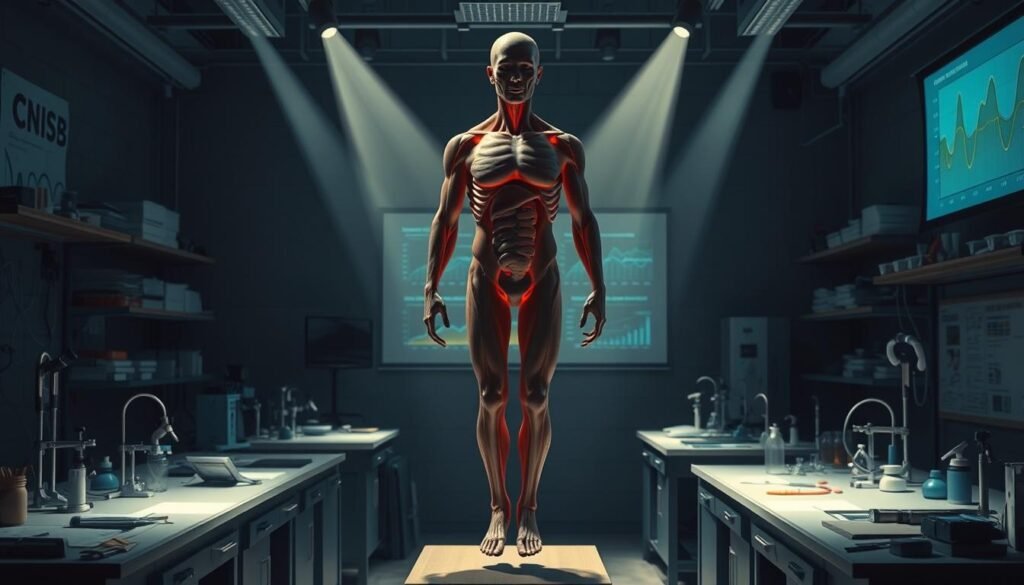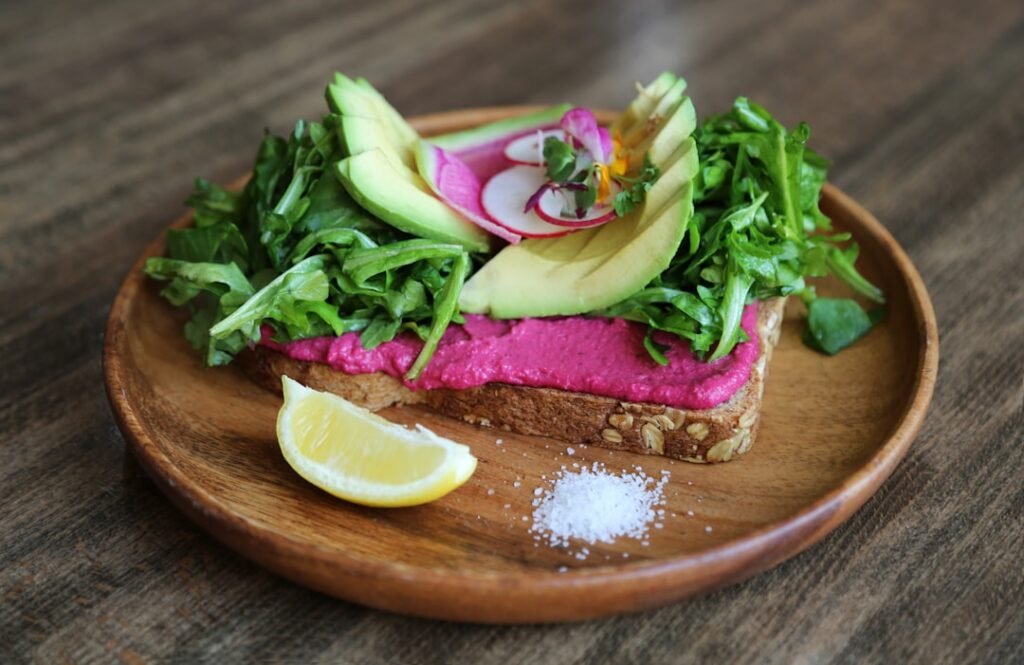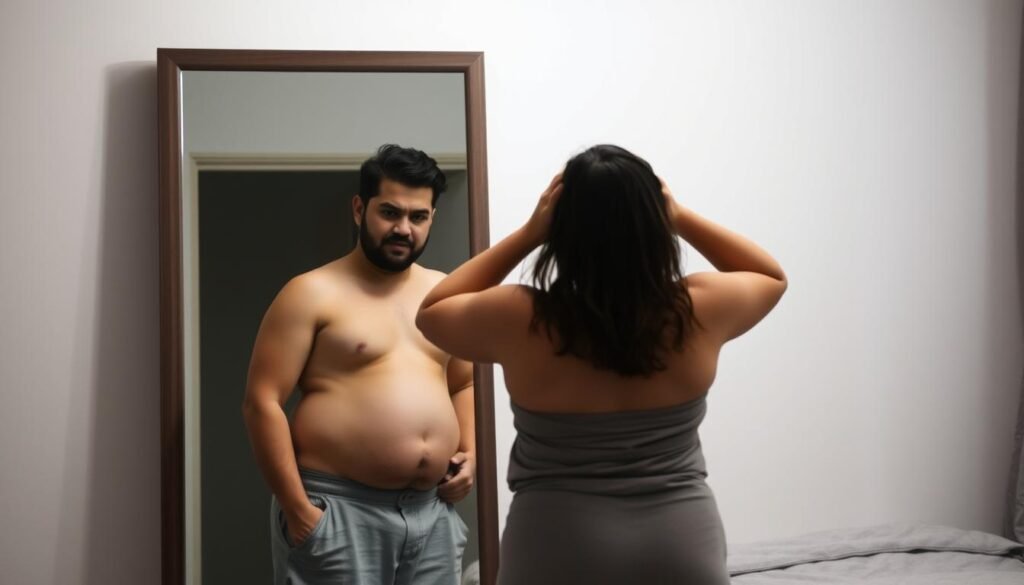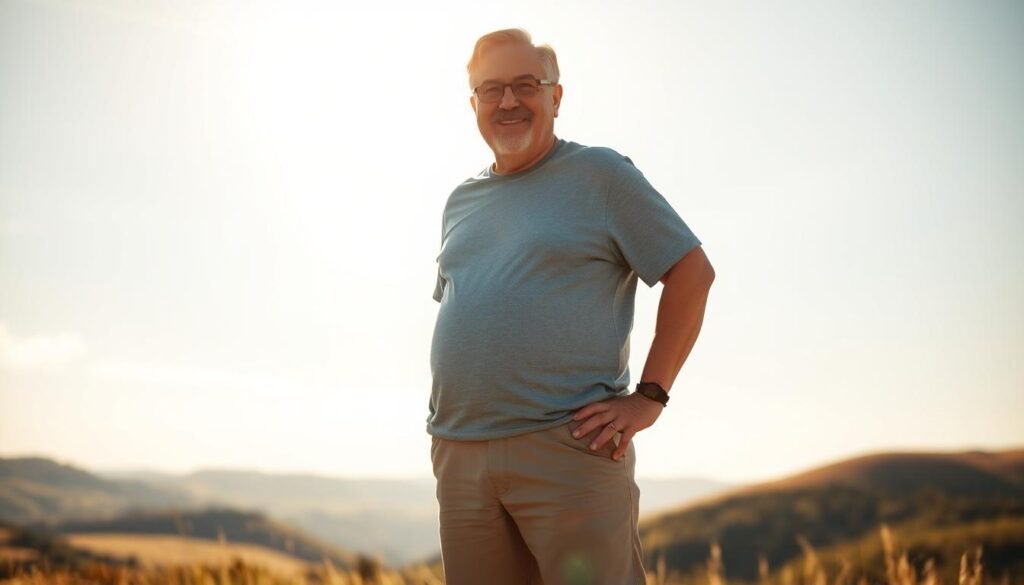Have you ever felt like no matter what you do, your body just won’t change? I’ve been there. The frustration of trying to lose weight while feeling trapped in a cycle of weight gain can be overwhelming. It’s not just about the number on the scale—it’s about how we see ourselves and the societal pressures that shape our journey.
In the U.S., 40% of adults struggle with obesity, and for many, it’s a lifelong battle1. Genetics can play a role, but lifestyle choices like diet and exercise can make a difference1. Cutting 500 to 1,000 calories a day can lead to a healthy weight loss of 1 to 2 pounds per week1. But it’s not just about the numbers—it’s about finding a sustainable way to feel good in your body.
This article will explore the challenges of losing weight, from societal influences to personal experiences. We’ll dive into the science behind weight management and share insights on how to make this journey a positive part of your life.
Key Takeaways
- 40% of adults in the U.S. struggle with obesity1.
- Genetics influence weight, but lifestyle choices can mitigate risks1.
- Cutting 500-1,000 calories daily can lead to healthy weight loss1.
- Exercise and diet are key to sustainable weight management.
- Focus on progress beyond the scale, like improved health and confidence.
Understanding “fat forever” in the Context of Weight Loss
Society often makes us believe that our bodies are never good enough. The pressure to conform to unrealistic standards can feel overwhelming. For many, this leads to a cycle of trying to lose weight, only to feel like it’s a losing battle. This section explores how societal pressures and diet culture shape our perception of ourselves.
Examining Societal Pressures and Diet Culture
Media and social norms play a huge role in how we view our bodies. From ads promoting quick fixes to influencers showcasing “perfect” bodies, the message is clear: thinness equals success. This constant bombardment can make anyone feel inadequate, especially when weight loss feels out of reach2.
Diet culture thrives on this insecurity. It pushes extreme measures like restrictive diets and excessive exercise, often ignoring the emotional toll. Many people end up feeling trapped, believing they’ll never achieve the “ideal” body. This mindset can lead to unhealthy habits and a negative self-image.
Impact on My Self-Perception
Growing up, I internalized these messages. I felt like my worth was tied to my weight. Every time I tried to lose weight, I’d get discouraged when the results didn’t match my expectations. It took years to realize that my value isn’t determined by a number on the scale.
Anti-diet and fat liberation movements have been a game-changer for me. They emphasize self-acceptance and challenge the idea that thinness is the only way to be healthy. These movements remind us that our bodies are worthy of love and respect, no matter their size.
Understanding this context is crucial. It helps us break free from societal pressures and focus on what truly matters: our health and happiness. In the next sections, we’ll explore how to approach weight loss in a way that’s sustainable and empowering.
The Science of Weight Loss Challenges
Weight loss isn’t just about diet and exercise—it’s a complex biological process. Many factors, including external chemicals, can influence how our bodies respond to efforts to lose weight. Understanding these challenges can help us approach weight loss in a more informed and effective way.

The Role of Forever Chemicals in Hampering Metabolism
Forever chemicals, like PFOS and PFOA, are substances that accumulate in the environment and our bodies. Research shows they interfere with cellular respiration, disrupting ATP production, which is essential for energy3. This disruption can slow metabolism, making it harder to lose weight.
Professor William Baldwin’s studies on mice revealed that exposure to these chemicals leads to inflammation and fat uptake processes similar to those in humans3. This means that even with a healthy diet and regular exercise, these chemicals can create barriers to effective weight loss.
Navigating Cellular Barriers and Energy Efficiency
Our bodies are designed to be energy-efficient, but this can work against us when trying to lose weight. Cutting calories triggers biological mechanisms that slow metabolism, making it harder to maintain weight loss4. Hormonal changes, like a drop in leptin levels, can also increase hunger, complicating the process4.
Understanding these cellular barriers is crucial. It helps us see that weight loss isn’t just about willpower—it’s about working with our body’s natural processes. By addressing these challenges, we can create a more sustainable approach to managing our weight.
My Personal Journey Through Diet, Exercise, and Weight Management
My journey with weight management has been a rollercoaster of emotions and challenges. For years, I cycled through extreme diets and compulsive exercise routines, hoping to lose weight quickly. Each time, I felt more depleted and frustrated, trapped in a cycle that left me feeling worse about my body.

Breaking the Cycle of Extreme Diets and Exercise
I tried every diet trend, from cutting carbs to fasting, but none brought lasting results. The praise I received when I lost weight only deepened my insecurities. I began to adopt unhealthy behaviors, like secret eating and binge episodes, which made me feel even more out of control.
Research shows that 95% of people who lose weight on a diet regain it within a few years5. This statistic hit home for me. I realized that extreme measures weren’t the answer. Instead, I needed a sustainable approach that respected my body’s natural process.
Learning to Trust My Body’s Process
The turning point came when I decided to stop fighting my body and start listening to it. I quit smoking, reduced alcohol intake, and stopped binge eating. These changes improved my overall well-being and helped me reconnect with my body’s signals.
I also embraced the idea that weight loss isn’t just about the scale. It’s about feeling good in your skin and living a healthy, balanced life. The National Weight Control Registry found that successful dieters exercise for about 60 minutes daily, typically through walking5. This inspired me to focus on activities I enjoyed, like yoga and hiking, rather than punishing workouts.
| Lifestyle Change | Impact |
|---|---|
| Quit Smoking | Improved lung health and energy levels |
| Reduced Alcohol | Better sleep and fewer cravings |
| Stopped Binge Eating | Healthier relationship with food |
Today, I’m in a much better place. I’ve learned to appreciate my body for what it can do, rather than how it looks. This journey hasn’t been easy, but it’s taught me the importance of self-acceptance and sustainable practices over extreme measures.
Integrating Body Positivity with Sustainable Weight Loss Strategies
Shifting my perspective on weight loss transformed my approach to health. For years, I chased unrealistic standards, believing that my worth was tied to my weight. It wasn’t until I discovered fat liberation and anti-diet movements that I began to see my body in a new light.

Discovering Fat Liberation and Anti-Diet Movements
Fat liberation taught me to celebrate my body as it is, rather than striving for an unattainable ideal. Movements like Health at Every Size (HAES) emphasize that health isn’t determined by weight alone. Research shows that 68% of individuals feel pressure to conform to societal beauty standards, which often leads to unhealthy habits6.
Anti-diet activism challenged the harmful narratives of diet culture. Instead of focusing on restrictive diets, I learned to prioritize intuitive eating and joyful movement. Studies suggest that intuitive eating practices reduce disordered eating behaviors by 50%6. This shift helped me build a healthier relationship with food and my body.
“Health is not a size; it’s a way of living that honors your body’s needs.”
Embracing Sustainable Strategies
Integrating body positivity into my weight loss journey meant focusing on long-term wellness rather than quick fixes. I adopted mindful eating practices and moderate exercise routines that I genuinely enjoyed. Research indicates that individuals who engage in joyful movement report 40% higher satisfaction with their routines6.
I also learned the importance of self-compassion. Instead of criticizing myself for setbacks, I celebrated small victories. This mindset shift made the process more sustainable and less stressful. Studies show that ongoing support from healthcare providers or groups significantly improves weight loss maintenance7.
Balancing Health Goals and Body Diversity
Today, I strive for a balance between pursuing my health goals and celebrating body diversity. I’ve realized that weight loss isn’t the only measure of success. Improved energy, better sleep, and increased confidence are equally important. By rejecting harmful diet culture practices, I’ve created a lifestyle that supports both my physical and mental well-being.
This journey has taught me that sustainable change comes from integrating body positivity into every facet of weight management. It’s not just about losing weight—it’s about embracing a healthier, happier version of myself.
Conclusion
Understanding the complexities of weight loss can transform how we approach our health. Societal pressures, scientific insights, and personal experiences all play a role in shaping our journey. By embracing body positivity and informed lifestyle changes, we can create sustainable strategies that work for our unique body.
Trusting the process is key. Research shows that a moderate calorie deficit of 250 to 500 calories per day leads to sustainable weight loss8. Combining this with joyful movement and mindful eating can make a significant difference.
Remember, losing weight isn’t just about the scale. It’s about improving overall well-being and finding balance. By staying aware of environmental and cultural factors, we can navigate this journey with confidence and self-compassion.
I encourage you to explore both scientific evidence and personal narratives when considering your own health. Change is possible, even when facing overwhelming pressures. Let’s continue this conversation and support each other in embracing healthier, happier lives.
FAQ
Is it possible to lose weight if I feel like I’m stuck in a cycle of weight gain?
How do societal pressures and diet culture affect my self-perception?
What role do “forever chemicals” play in weight loss challenges?
How can I break the cycle of extreme diets and exercise?
What does it mean to trust my body’s process during weight loss?
How can I integrate body positivity with sustainable weight loss strategies?
What are fat liberation and anti-diet movements, and how do they relate to weight loss?
Source Links
- https://www.webmd.com/obesity/features/are-you-fated-be-fat
- https://www.mybotoxla.com/blog/zerona-vs-coolsculpting-what-treatment-gets-rid-of-fat-forever
- https://www.npr.org/2019/04/25/717058877/the-biology-of-weight-loss
- https://blog.ahwendowment.org/the-science-behind-losing-weight-and-keeping-it-off
- https://www.helpguide.org/wellness/weight-loss/how-to-lose-weight-and-keep-it-off
- https://www.weightcrafters.com/news/balance-healthy-beauty-body-positivity/
- https://pmc.ncbi.nlm.nih.gov/articles/PMC5764193/
- https://triagemethod.com/how-to-lose-fat-and-keep-it-off-forever/






